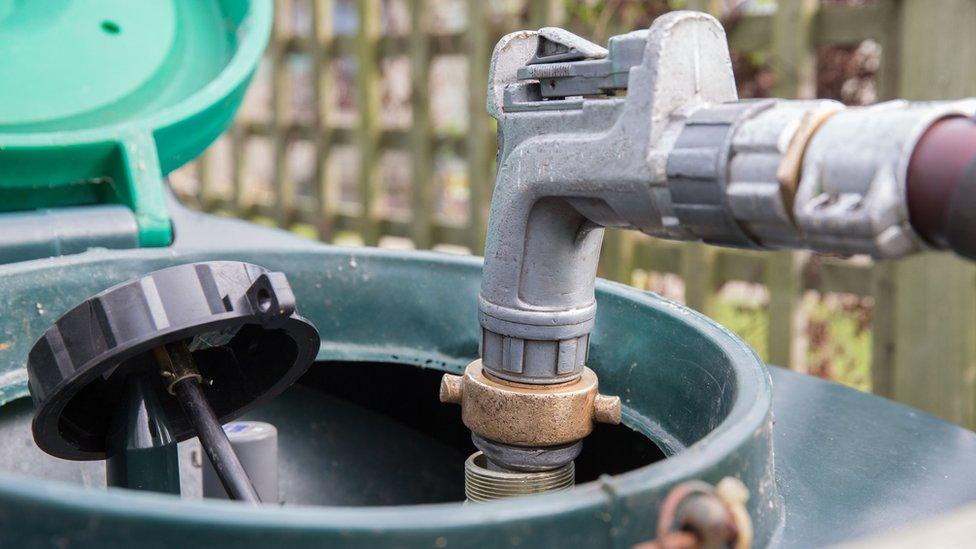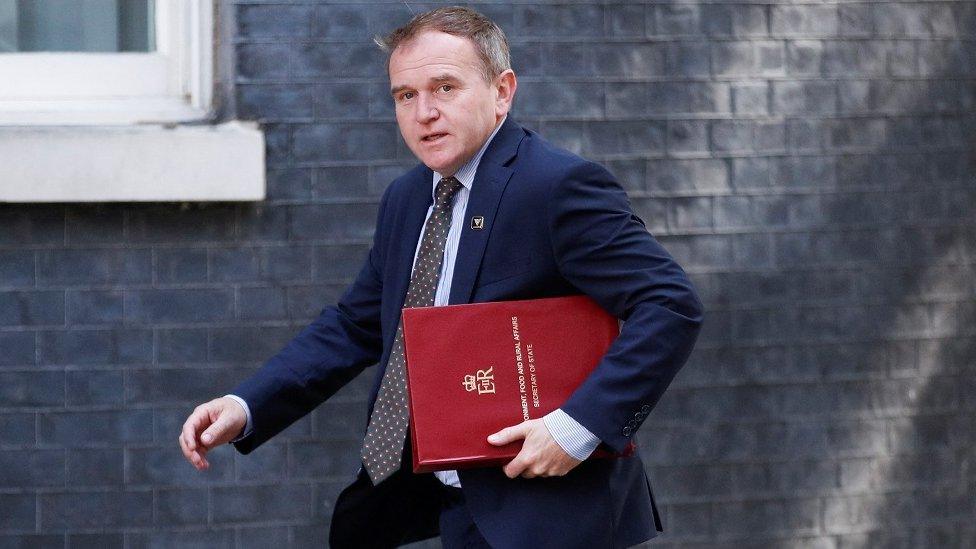George Eustice proposes tax cuts on vegetable oil to heat homes
- Published
- comments

People should be given tax incentives to heat their homes with vegetable oil to help the environment, a former minister has said.
MPs voiced their support for George Eustice's plan to cut levies on hydro-treated vegetable oil (HVO), which can produce 90% less carbon dioxide.
The biofuel, derived from waste, is taxed at the same rate as diesel.
The ex-environment secretary's proposal is unlikely to become law without government backing.
But his Ten Minute Rule Bill was backed by senior Tory and Democratic Unionist MPs.
Mr Eustice argued that the move will help decarbonise an estimated 1.7m "off-grid" household using kerosene boilers in the UK,
Under government plans, from 2026 homes heating their home from kerosene tanks will be banned from buying replacement boilers. Instead, homes will be expected to install heat pump systems.
But Mr Eustice, the Conservative MP for Camborne and Redruth, argued the costs involved in installing heat pumps in older rural properties is a "huge barrier".
Kerosene oil boilers can run on HVO with at a "modest cost" instead, Mr Eustice said. This would reduce emissions and "establish a better path towards decarbonising our energy in these off-grid homes," he added.
By reducing tax on HVO to make it the same price as kerosene will lead to a "very rapid adoption" of the biofuel and an "88% reduction in carbon emissions" in the next four years, Mr Eustice said.

HVO is a fossil-free, renewable and sustainable fuel produced by hydrotreatment of vegetable oils and animal fats. It can be produced from waste feedstocks and cooking oil.
A government study found that replacing diesel with HVO can lead to a 27% reduction in nitrous-oxide emissions, linked to asthma and heart disease.
Mr Eustice's said a pilot program in the small village of Kehelland, in his constituency, has led to fuel consumption to fall by "around 30% to 35%".
The local church, school, businesses and homes were converted to run on HVO as part of a trial by local fuel distributor Mitchell and Webber.
A two-month trial run by Cambridge City Council, found a 90% reduction in carbon emissions after two bin lorries were run on HVO instead of diesel.
Mr Eustace's Ten Minute Rule bill passed without opposition but faces an uphill battle to become law.
It will now be scheduled for debate along with the other Private Member's Bills, but at a lower priority , and is unlikely to move on without support from the government.
- Published6 July 2022
